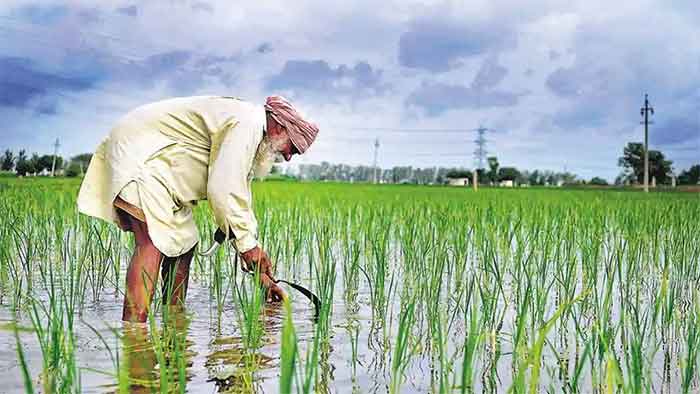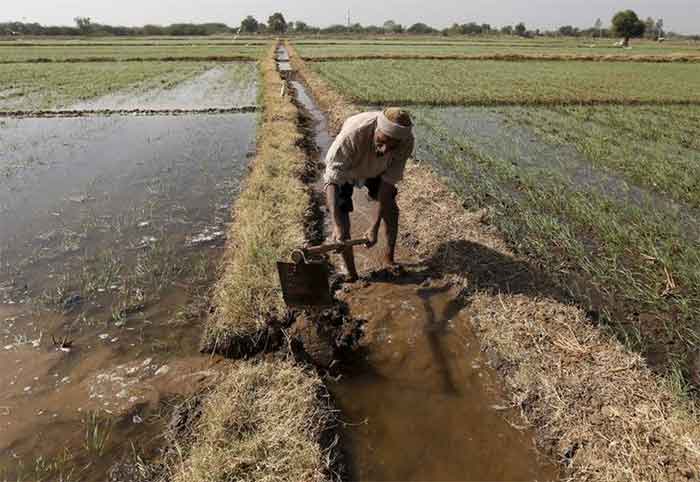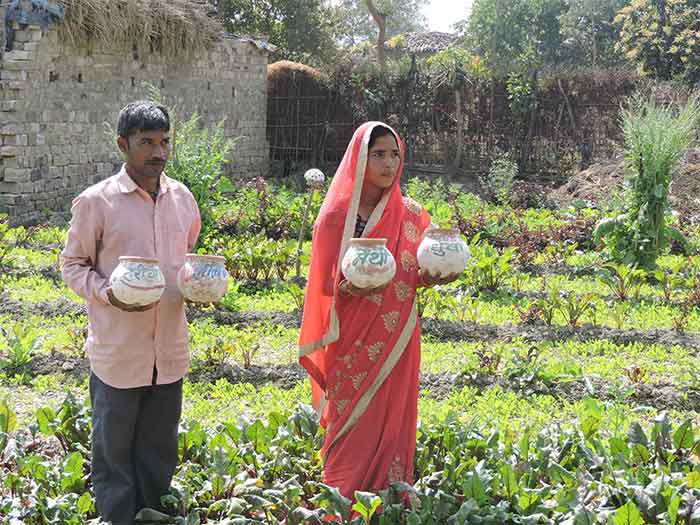
The food crisis that could follow in the wake of the various lockdowns that were implemented on the back of the coronavirus may have long-lasting consequences. We are already seeing food shortages in the making. In India, for instance, supply chains have been disrupted, farm input systems for the supply of seeds and fertilisers have almost collapsed in some places and crops are not being harvested. Moreover, cultivation has been adversely affected prior to the monsoon and farm incomes are drying up. Farmers closer to major urban centres are faring a bit better due to shorter supply chains.
Veteran rural reporter P Sainath has urged India’s farmers to move away from planting cash crops and to start cultivating food crops, saying that you cannot eat cotton. It’s a good point. For instance, according to a report that appeared on the ruralindiaonline website, in a region of southern Odisha, farmers have been pushed towards a reliance on (illegal) expensive genetically modified herbicide tolerant cotton seeds and have replaced their traditional food crops. Farmers used to sow mixed plots of heirloom seeds, which had been saved from family harvests the previous year and would yield a basket of food crops. They are now dependent on seed vendors, chemical inputs and a volatile international market to make a living and are no longer food secure.
But what is happening in India is a microcosm of global trends. Reliance on commodity monocropping for international markets, long global supply chains and dependency on external inputs for cultivation make the food system vulnerable to shocks, whether resulting from public health scares, oil price spikes (the industrial global food system is heavily fossil-fuel dependent) or conflict. An increasing number of countries are recognising the need to respond by becoming more food self-sufficient, preferably by securing control over their own food and reducing supply chains.
Various coronavirus lockdowns have disrupted many transport and production activities, exposing the weaknesses of our current food system. While one part of the world (the richer countries) experiences surplus food but crop destruction due to farm labour shortages, millions of people elsewhere could face hunger due to rising food prices – or a lack of food availability altogether: the story of India’s migrant workers returning to their villages from the cities has been one of hardship, hunger and even death.
If the current situation tells us anything, it is that structural solutions are needed to reorganise food production. In his final report (2014) to the UN Human Rights Council as Special Rapporteur, Olivier De Schutter called for the world’s food systems to be radically redesigned. His report concluded that by applying agroecological principles to the design of democratically controlled agricultural systems we can help to put an end to food crises and poverty challenges. De Schutter argued that agroecological approaches could tackle food needs in critical regions and could double food production in 10 years. However, he stated that insufficient backing seriously hinders progress.
In addition to De Schutter’s 2014 report, the 2009 IAASTD peer-reviewed report, produced by 400 scientists and supported by 60 countries, recommends agroecology to maintain and increase the productivity of global agriculture. Moreover, the recent UN FAO High Level Panel of Experts concluded that agroecology provides greatly improved food security and nutritional, gender, environmental and yield benefits compared to industrial agriculture.
As a model of agriculture, agroecology is based on traditional knowledge and modern agricultural research, utilising elements of contemporary ecology, soil biology and the biological control of pests. This system combines sound ecological management by using on-farm renewable resources and privileging endogenous solutions to manage pests and disease without the use of agrochemicals and corporate seeds.
Agroecology can also offer concrete, practical solutions to many of the world’s problems. It offers an alternative to a prevailing system of doctrinaire neoliberal economics that drives a failing model of industrial agriculture which is having devastating impacts on the environment, rural communities, public health, local and regional food security and food sovereignty.
Agroecology outperforms the prevailing industrial food system in terms of diversity of food output, nutrition per acre, soil health and efficient water use. In addition, by creating securely paid labour-intensive agricultural work in richer countries, it can also address the interrelated links between labour offshoring by those countries and the displacement of peasant farmers elsewhere who end up in sweat shops to carry out the outsourced jobs.
The Declaration of the International Forum for Agroecology by Nyeleni in 2015 argued for building grass-root local food systems that create new rural-urban links, based on genuine agroecological food production. It added that agroecology requires local producers and communities to challenge and transform structures of power in society, not least by putting the control of seeds, biodiversity, land and territories, waters, knowledge, culture and the commons in the hands of those who feed the world.
It would mean that what ends up in our food and how it is grown is determined by the public good and not powerful private interests driven by commercial gain and the compulsion to subjugate farmers, consumers and entire regions to their global supply chains and questionable products( whether unhealthy food or proprietary pesticides and seeds). For consumers, the public good includes more diverse diets leading to better nutrition and enhanced immunity when faced with any future pandemic.
As Florence Tartanac, senior officer at Nutrition and Food Systems Division of the UN FAO, sated in April 2018:
“… agroecological markets bring an increase in the availability of more diverse food, especially of local varieties, that are linked to traditional diets. Therefore, consumers’ awareness should be increased on the importance of diet diversification and its effects on physical and mental health as well as on the positive impacts of sustainable, local and traditional consumption on the social, economic and environmental compartments.”
She made these comments during the second FAO international symposium ‘Scaling up Agroecology to Achieve the Sustainable Development Goals’. And it’s a valid point seeing that the modern diet has become less diverse and is driving a major public health crisis in many countries.
Across the world, decentralised, region and local community-owned food systems based on short(er) food supply chains that can cope with future shocks are now needed more than ever.
Colin Todhunter is an independent writer
SIGN UP FOR COUNTERCURRENTS DAILY NEWS LETTER















































